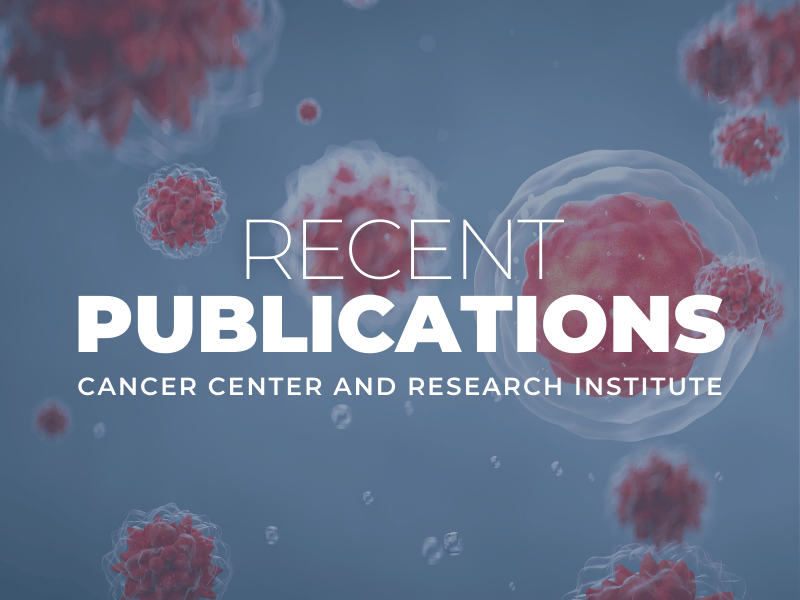Recent publications

New research highlights benefits and risks of dietary isoflavones for female hormone-dependent cancers
In 2024, an estimated 2 million new cancer cases and over 611,000 cancer deaths were expected in the U.S. Hormone-dependent cancers like breast, uterine and ovarian, grow in response to certain hormones and make up a large number of cancer cases in both the U.S. and worldwide.

Studies suggest that estrogen therapy, for managing menopause symptoms, may increase the risk of hormone-dependent cancers.On the other hand, phytoestrogens, which are plant-based compounds with similar structures to estrogen, are being explored for their potential to prevent or treat female hormone-dependent cancers.
Due to limited clinical evidence supporting the use of dietary isoflavones on female hormone-dependent cancers, Dr. Jawed Siddiqui, assistant professor in the Department of Cell and Molecular Biology at the School of Medicine and Cancer Center and Research Institute member, along with his lab, wanted to explore the impact of these plant estrogens on tumor growth and bridge the gap between laboratory research and clinical application. In collaboration with Central Drug Research Institute (India), King George's Medical University (India) and Sanjay Gandhi Postgraduate Institute of Medical Sciences (India), Siddiqui conducted a systematic review and meta-analysis of articles, ranging from 1998 to 2024, that were related to the effects of dietary isoflavones on tumor growth in animal models of female hormone-dependent cancers.
The effects of the plant estrogens were examined between control and treatment groups using meta-analysis software. Interestingly, the study is the first to systematically assess the benefits and risks of soy isoflavones in experimental models of female hormone-dependent cancers.
"While dietary isoflavones may reduce tumor volume, their effect on tumor area highlights both benefits and risks. Caution is needed when considering supplements for hormone-dependent cancers," said Siddiqui.
Publication citation:
Chakravarti, B., Rajput, S., Srivastava, A., Sharma, L. K., Sinha, R. A., Chattopadhyay, N., & Siddiqui, J. A. (2024). A systematic review and meta-analysis of the effects of dietary isoflavones on female hormone-dependent cancers for benefit–risk evaluation. Phytotherapy Research, 38(12), 6062-6081. https://doi.org/10.1002/ptr.8358

